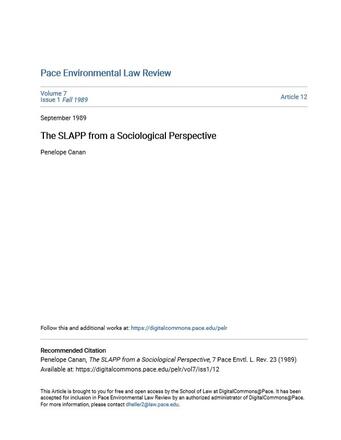
Related contents
SLAPPs: Strategic Lawsuits against Public ParticipationReducing Exposure to SLAPP Lawsuits: an Activist’s Guide
According to this approach, SLAPPs “involve the use of litigation to derail political claims, moving a public debate from the political arena to the judicial arena, where the playing field appears more advantageous”.
As this abuse of the law and of the courts comes as a reaction to public debate and participation, and its goal is to silence criticism, these lawsuits “violate Constitutional safeguard of political speech”.
This non-legal viewpoint adopted by professor Canan follows a basic question:
“What do we know about SLAPPs using insights from economics, political science, psychology, anthropology, and my own discipline, sociology?”.
The broader view on the topic allows a wider range of knowledge and can help quantify the consequences and impact of SLAPPs. As the author explains, it gives the possibility “to learn about the heart and soul, the blood and guts, the greed and glory, the panic and the terror, the justifications and the celebrations, as well as the ramifications, of SLAPPs on people's lives”.
Another issue considered in this paper is the understanding of the relationship between law and the political vitality of American communities.
According to this study, “SLAPPs are not events, rather they comprise a political legal phenomenon. This means that we must treat each SLAPP as a window on a much larger process. So each SLAPP is not just the story of a legal dispute between opposing hostile parties. Rather, each SLAPP is a window on the relationship between democratic structures and judicial rules. It is a window on the link between political tolerance and economic dominance, and a window on the tension between constitutionalism and capitalism”.
Tags:The content of this article can be used according to the terms of Creative Commons: Attribution-NonCommercial 4.0 International (CC BY-NC 4.0) . To do so use the the wording "this article was originally published on the Resource Centre on Media Freedom in Europe" including a direct active link to the original article page.

